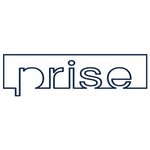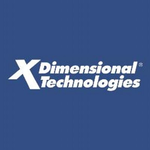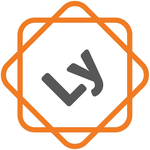Description

AQS Quoting Software

Solartis
Comprehensive Overview: AQS Quoting Software vs Solartis
AQS Quoting Software and Solartis are both significant players in the insurance technology industry, each catering to different aspects of the insurance process. Here's an overview of each, along with comparisons and differentiations:
AQS Quoting Software
a) Primary Functions and Target Markets:
- Primary Functions: AQS Quoting Software is primarily focused on providing rating and quoting solutions for insurance carriers. It assists in automating the pricing and quotes for various insurance products, including personal and commercial lines. The software can handle complex rating algorithms and integrates with other systems to streamline insurance operations.
- Target Markets: Its target markets are primarily insurance carriers and large brokers who need robust and customizable quoting solutions that can handle high volumes and complex rating requirements.
b) Market Share and User Base:
- Market Share: AQS has been serving the insurance industry for several decades and has established a solid niche within the space. However, it competes with other specialized rating and pricing platforms and broader insurance technology solutions providers.
- User Base: AQS is generally favored by mid to large-sized insurance carriers in North America that require specialized solutions for rating and quoting complex insurance products.
Solartis
a) Primary Functions and Target Markets:
- Primary Functions: Solartis focuses on providing insurance process automation services. This includes policy administration, billing, and claims management, with a strong emphasis on integrating and automating quotes and policy lifecycle management. Solartis also offers a microservices architecture that allows flexibility and scalability.
- Target Markets: Solartis targets a broad range of insurance businesses, including insurers, MGAs, brokers, and various enterprises looking for comprehensive automation of insurance processes.
b) Market Share and User Base:
- Market Share: Solartis is known for its flexible and modular microservices architecture, which makes it attractive to organizations seeking tailored insurance process automation. It competes in a wider segment of the insurance tech market as compared to purely quoting-focused systems.
- User Base: Its user base includes both small and large insurance entities globally that are looking for customizable and scalable solutions, especially those who want to leverage modern technology stacks.
Key Differentiating Factors:
-
Functionality Focus:
- AQS Quoting Software is specialized in rating and quoting, offering detailed and customizable rating solutions.
- Solartis offers a broader range of functionalities, including policy administration and claims handling, with a modular architecture that can integrate with existing systems.
-
Technology and Integration:
- AQS focuses on robust integration capabilities specific to rating and quoting systems, emphasizing speed and flexibility in rate changes.
- Solartis leverages microservices and cloud-based architectures to allow seamless integration and scalability across various insurance processes.
-
Customer Base and Customization:
- AQS generally attracts clients needing high customization in quoting and rating, especially in complex insurance markets.
- Solartis is preferred by companies looking for comprehensive end-to-end insurance process automation with the ability to adopt new technologies rapidly.
-
Innovation and Future-readiness:
- AQS continues to enhance its functionalities specific to rating complexities and market needs.
- Solartis often leads in terms of adopting new technological innovations like cloud computing and microservices, providing future-ready solutions.
These differences point to complementary roles depending on the specific needs of an insurance business, with AQS providing deep expertise in rating and Solartis offering a broad, technology-forward approach to insurance process automation.
Contact Info

Year founded :
Not Available
Not Available
Not Available
Not Available
Not Available

Year founded :
Not Available
Not Available
Not Available
Italy
http://www.linkedin.com/company/solartis
Feature Similarity Breakdown: AQS Quoting Software, Solartis
When comparing AQS Quoting Software and Solartis, both products are designed to assist in the insurance industry by focusing on quotation and policy management processes. Here's a breakdown of their features:
a) Core Features in Common:
-
Quotation Management: Both platforms offer comprehensive tools for generating insurance quotes efficiently, supporting various product lines and complex rating algorithms.
-
Integration Capabilities: They provide integration with other insurance systems such as policy administration systems, CRM platforms, and third-party data services to streamline processes and ensure data consistency.
-
Compliance and Regulatory Management: Both ensure that quotes meet industry regulations and compliance standards, providing updates as rules and laws change.
-
Workflow Automation: They offer automation of routine tasks within the quotation process, such as data entry and validation, to enhance efficiency and reduce errors.
-
Customizable Templates: Both solutions offer customizable quotation templates, allowing users to tailor the appearance and content of quotes to meet specific business needs.
b) Comparison of User Interfaces:
Unfortunately, without specific interface walkthroughs or visuals, it is challenging to provide a detailed comparison. However, generally speaking:
-
AQS Quoting Software is known for prioritizing ease of use with a straightforward, functional interface that focuses on user efficiency and quick access to key features. It often emphasizes clear data presentation.
-
Solartis tends to focus on delivering a modern UI with an emphasis on flexibility and user customization. Solartis often receives positive feedback for adaptability and intuitive design, especially beneficial in environments where user preferences vary.
c) Unique Features:
-
AQS Quoting Software:
- Advanced Calculator Tools: AQS might offer more advanced rating tools or specific calculators tailored to niche insurance products or markets.
- Market-Specific Customizations: AQS often excels in providing solutions that are tailored to specific market needs, offering unique features or add-ons that address niche industry requirements.
-
Solartis:
- Microservices Architecture: Solartis often emphasizes a microservices-based architecture, allowing for greater flexibility and scalability. This allows insurers to make incremental updates and integrations with minimal disruption.
- End-to-End Policy Lifecycle Support: In addition to quoting, Solartis might offer more comprehensive support for the entire insurance policy lifecycle management within the same platform, providing a seamless end-to-end solution.
These distinctions depend on updates and changes in product offerings, so it is recommended to consult the companies’ official resources or sales representatives for the most current information.
Features

Not Available

Not Available
Best Fit Use Cases: AQS Quoting Software, Solartis
AQS Quoting Software and Solartis are tools that cater to different needs within the insurance and risk management sector. Let's break down the best fit use cases for each:
AQS Quoting Software:
a) Types of Businesses or Projects:
- Insurance Providers: AQS Quoting Software is ideal for businesses in the insurance industry that require efficient quoting processes. This includes health, auto, life, and property insurers.
- Brokers and Agents: Insurance brokers and agents who manage multiple quotes for clients can benefit from streamlined operations and accuracy in quote management.
- Underwriters: It aids underwriters in assessing risks and generating quotes swiftly, ensuring quick turnaround times for clients.
- Mid-size Enterprises: Medium-sized insurance companies looking to enhance operational efficiency without deploying overly complex or large-scale solutions.
d) Industry Verticals and Company Sizes:
- Various Insurance Lines: It adapts well to multiple insurance lines, offering flexibility in crafting customized quotes based on detailed criteria.
- Medium-sized Firms: AQS is well-suited for mid-sized companies needing robust capabilities without the overhead of larger enterprise solutions. Its scalability may also address growing needs as the business expands.
Solartis:
b) Preferred Scenarios:
- End-to-End Policy Management: Solartis is preferred where there's a need for comprehensive policy lifecycle management, from quoting to issuance and beyond.
- Digital Transformation Projects: Companies undergoing digital transformation initiatives to modernize processes and reduce operational costs might find Solartis especially beneficial.
- High Volume Transactions: Insurers dealing with high transaction volumes will benefit from Solartis' capacity to handle scale efficiently.
- Flexible Configuration Needs: Industries that require customized and flexible policy configurations will find Solartis advantageous.
d) Industry Verticals and Company Sizes:
- Large Enterprises: Solartis caters to large insurance enterprises or those with complex needs, providing a scalable and robust platform that supports comprehensive policy administration.
- Various Sectors: While focused on the insurance sector, Solartis’s adaptability allows applications across different business models requiring policy-like management structures (e.g., warranty services, specialty risks).
- Global Reach: Companies with international operations may leverage Solartis for its capacity to handle multi-currency and multi-language processes.
Both software solutions cater to the insurance industry but emphasize different needs and scales, with AQS focusing on flexible quoting processes and Solartis offering end-to-end policy management capabilities for larger-scale operations.
Pricing

Pricing Not Available

Pricing Not Available
Metrics History
Metrics History
Comparing teamSize across companies
Conclusion & Final Verdict: AQS Quoting Software vs Solartis
To provide a conclusion and final verdict for AQS Quoting Software and Solartis, we will examine the two products in terms of overall value, advantages and disadvantages, and recommendations for potential users.
Conclusion and Final Verdict
a) Best Overall Value
Determining the "best overall value" between AQS Quoting Software and Solartis depends on the specific needs and priorities of the user or organization. However, generally speaking:
- AQS Quoting Software is likely to be the best choice for users prioritizing comprehensive features tailored specifically to insurance quoting, with robust support for complex policy administration.
- Solartis is advantageous for those looking for flexible, scalable, and cloud-based solutions with stronger support for automation and integration within a larger enterprise ecosystem.
b) Pros and Cons
AQS Quoting Software
Pros:
- Industry Specialization: Offers specialized tools and features tailored to the insurance industry, facilitating detailed and specific quoting capabilities.
- User-Friendly Interface: Known for an intuitive interface that users find easy to navigate.
- Comprehensive Features: Provides a wide range of functionalities that are specifically optimized for policy administration and management.
Cons:
- Integration Challenges: May face challenges integrating with other non-industry-specific enterprise systems.
- Scalability Limitations: Potentially less scalable compared to competition that offers cloud-native solutions.
Solartis
Pros:
- Scalability: As a cloud-based solution, Solartis offers exceptional scalability, making it attractive to growing businesses and large enterprises.
- Automation and Integration: Strong capabilities in automation and integration, allowing for streamlined operations and improved efficiency.
- Innovative Platform: Offers cutting-edge features, leveraging the latest technologies to enhance user experience and operational capabilities.
Cons:
- Complexity for Small Businesses: May be overly complex and feature-rich for small businesses or those with simpler quoting and policy needs.
- Higher Learning Curve: Users may experience a steeper learning curve due to its advanced functionalities and features.
c) Recommendations
-
Assess Specific Needs: Users should evaluate their specific requirements, such as the size of their business, the complexity of their quoting needs, and the importance of integration with existing systems.
-
Test Usability: It's beneficial for potential users to take advantage of demos or trial versions to gauge usability, as this directly impacts productivity and satisfaction levels.
-
Consider Future Growth: Those anticipating significant growth or needing extensive integrations might lean towards Solartis for its scalability and automation features. Conversely, those with stable operations focused on insurance quoting might find AQS Quoting Software more aligned with their needs.
-
Balance Cost and Features: Evaluate the cost versus the offered features. Ensure that the selected software fits the budget without unnecessary expenditure on features that won’t be utilized.
In conclusion, both AQS Quoting Software and Solartis have significant strengths. Choosing the right tool should align with organizational goals, the extent of needed features, budget constraints, and anticipated growth or change in operations.
Add to compare




